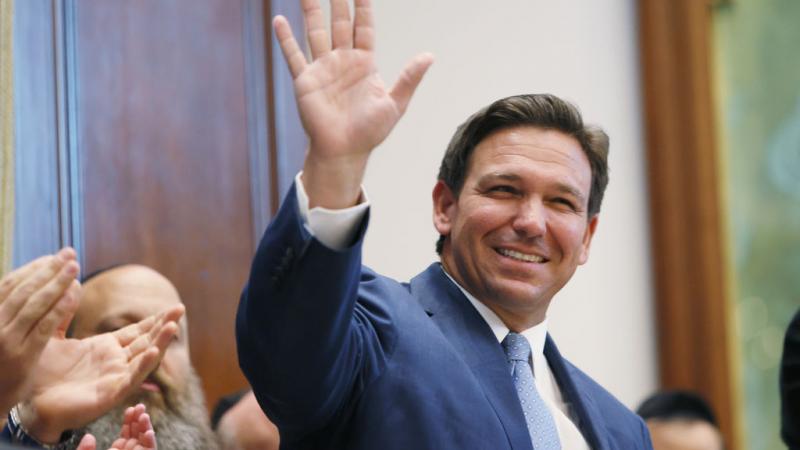House conservatives' negotiations with McCarthy 'disappointing' so far: Freedom Caucus chair
Most of the GOP Conference rules changes sought by the conservative House Freedom Caucus so far have been rejected by GOP leadership.
House Freedom Caucus Chairman Rep. Scott Perry (R-Pa.) says he's disappointed in the negotiations his caucus is engaged in with House Republican Leader Kevin McCarthy, who has been nominated for speaker.
The full GOP caucus voted for McCarthy 188-31. He needs 218 votes in January when the floor vote for speaker takes place. Following the vote, the office of former House Freedom Caucus Chairman Rep. Andy Biggs, who had challenged McCarthy for speaker, said conservative members of the Freedom Caucus are in a better position to get their desired rules changes adopted by House GOP leadership.
"No leverage was lost at all today," Biggs' spokesperson told Just the News after McCarthy was nominated for speaker on Tuesday. "Congressman Biggs secured 31 votes, meaning Minority Leader McCarthy still doesn't have the votes to become the next speaker. McCarthy will have to make a number of concessions — starting by implementing the rules changes sought by the House Freedom Caucus — for any legitimate chance of gaining speakership."
But the concessions conservatives are seeking aren't materializing.
Just the News asked Perry on Friday how he feels about the leadership's treatment of the Freedom Caucus so far and whether they've been receptive to most of the changes sought by the caucus.
"While it's all been very cordial, we don't seem to be getting anywhere all while the Leader's vision for change hasn't materialized," Perry said in a statement provided to Just the News. "It's been disappointing."
According to a GOP aide, eight rule changes have been considered by House GOP leadership, and "the rest will be considered when members return after Thanksgiving."
The House Conference rules changes that conservatives have been pushing for include bringing back a ban on earmarks, which are pet projects often slipped inside large spending bills, and requiring that spending bills have to pass before the fiscal year officially begins on Oct. 1 or other legislation cannot be considered on the floor.
The spending bill rule change is among the six amendments that were rejected by House GOP leadership this week.
Only two amendments were passed, which involved the reopening of House and Capitol grounds to the public after access was limited due to the pandemic and prohibiting steering committee members, except elected leadership, from serving on the executive committee of the National Republican Congressional Committee.
The failed amendments included one ensuring all members of the Republican Conference are able to participate in conference meetings and another that would have allowed one member, with the support of 25 others, to request having one Republican staffer admitted to conference meetings. An amendment that would have allowed committee members to elect their own chairmen also failed.
Members of the Freedom Caucus also want to "reimplement" the Holman Rule, according to an official summary of their desired rules changes.
"Democrats eliminated the 'Holman Rule' when they took the House because it allows members to make targeted spending cuts in appropriations funding bills by slashing the funding of specific federal programs or cutting the salaries of individual federal employees (e.g., Dr. Anthony Fauci)," read a July House Freedom Caucus document summarizing the desired amendments to the rules.
In addition, the conservative caucus members support an amendment that would eliminate "the ability to automatically suspend the debt ceiling without a standalone vote" whenever the House adopts a budget resolution. These amendments will be among the rules changes considered at a later date.














